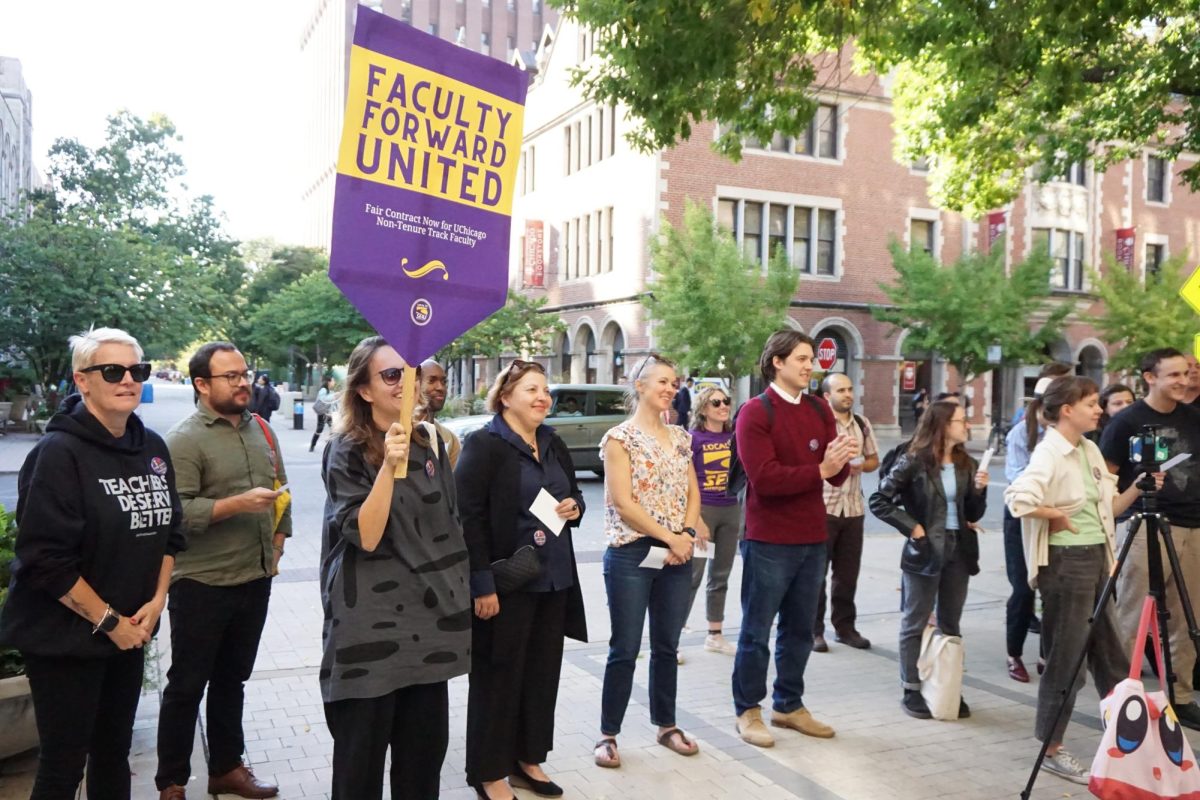On November 13, Faculty Forward, the non-tenure-track faculty union at the University of Chicago, ratified a new collective bargaining agreement (CBA) with the University. Negotiations began in March and spanned 29 bargaining sessions. A tentative agreement was reached on November 1, and the contract was ratified by union members with 200 “yes” votes to 27 “no” votes, or 88 percent to 12 percent.
The ratification marks the end of an eight-month negotiation process and introduces significant improvements in pay, benefits, and working conditions for non-tenure track faculty, a group that includes over 500 lecturers, instructional professors, teaching fellows, professors of practice in the arts, and writing specialists at the University.
In a statement to the Maroon, Faculty Forward’s Executive Committee emphasized wage increases as the negotiation’s most significant achievement. The union secured a 25.1 percent pay raise over five years for its members across the board, as well as higher increases for specific faculty groups, such as writing instructors and teaching fellows.
“We won significant pay raises for all, with our lowest paid members receiving the largest percentage increases, allowing us to reclaim our purchasing power eroded by inflation and remain competitive with our peer institutions,” the statement read.
Other key provisions include protections for academic freedom, guaranteed H-1B visa sponsorship for certain positions, child care allowances, portable tuition benefits, and paid professional leave.
The union credited its members’ solidarity and a petition signed by over 500 students and alumni with helping secure the deal. They also highlighted the support of Service Employees International Union (SEIU) Local 73 staff Leah Fried and Andrew Yale as well as federal mediator Brenda Pryor.
Additionally, the statement emphasized the importance of collective action throughout the negotiation process, noting that the authorization of a potential strike played a pivotal role in securing their bargaining position. “The large majority who authorized a strike if management did not agree to a good deal was vital to making sure the bargaining team had the strength we needed to secure a fair contract,” the statement read.
The union also expressed appreciation for the university administration’s “good faith and hard work” during negotiations. “We value the relationships we have built with the administration and look forward to working with them in the coming years to implement and maintain the contract for the benefit of our members and our institution,” the statement continued.
Looking forward, the union reaffirmed its commitment to being a “member-led, open, and democratic bargaining unit” that continues to support the university’s mission and deliver “excellent education” to its students.










zman / Nov 25, 2024 at 11:56 pm
UChicago has over 500 non-tenure track faculty members? Are the professors so lofty that they are above lecturing in classrooms? I don’t recall your dad’s UofC being an “adjunct” university.